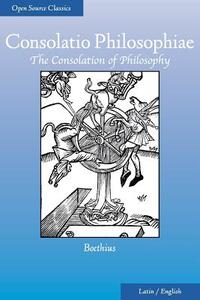You need to sign in or sign up before continuing.
Take a photo of a barcode or cover
reflective
slow-paced
challenging
reflective
slow-paced
challenging
informative
reflective
slow-paced
Boethius uses one of Plato's most counter-intuitive feats of reason as the cornerstone of his Consolation: that evil does not exist. As he sits in his cell, awaiting an imminent execution, Boethius attempts to convince himself (via an angelic interlocutor named Philosophy) that the injustice he faces will do his persecutor more harm than it will do him, and that his unjust murder is providential. In the Big Picture, which is beyond human comprehension, his torture and demise is all for the best, because it is all part of God's plan.
This sounds a bit cracked, but it is perfectly reasonable (and reasoned) if one takes Platonic idealism as a matter of religious faith, which I think Boethius does. He found this to be consoling. What is really interesting to me is why did he think this was more consoling than Christianity -- or did he?
This sounds a bit cracked, but it is perfectly reasonable (and reasoned) if one takes Platonic idealism as a matter of religious faith, which I think Boethius does. He found this to be consoling. What is really interesting to me is why did he think this was more consoling than Christianity -- or did he?
challenging
reflective
medium-paced
Breakup read. Boethius manages quite capably to perform the Christian-Stoic move of compartmentalizing his own acute suffering within the longer arc of human reason, life, and the nature of the world, and in beautiful Platonic language no less. One of the most vivid representations of Plato's injunction to create and perform morally edifying poetry to counter the music and theater which drives you to misery and confusion, with the added benefit of Boethius' own strongly poetic sensibilities. The Fifth Book stumbles on the question of free will in such an exciting and unexpected way.
Classic books are the best. I’ve read this one three times and always gain something new from it.
informative
reflective
medium-paced
informative
mysterious
reflective
medium-paced




